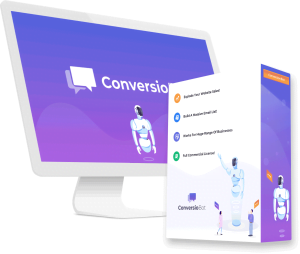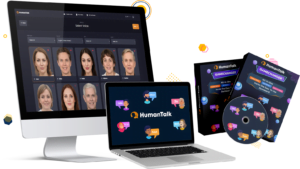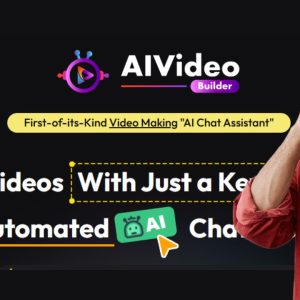-
Table of Contents
“Revolutionizing SEO with the Power of AI.”
Introduction
Artificial Intelligence (AI) has become an integral part of Search Engine Optimization (SEO) in recent years. With the help of AI, search engines can better understand user intent and deliver more relevant search results. AI-powered tools can also help SEO professionals analyze data, identify trends, and make informed decisions to improve website rankings. In this article, we will explore the role of AI in SEO and how it is changing the way we approach search engine optimization.
How AI is Revolutionizing Content Creation for SEO
The world of search engine optimization (SEO) is constantly evolving, and one of the most significant changes in recent years has been the rise of artificial intelligence (AI). AI is revolutionizing content creation for SEO, and it’s changing the way we think about optimizing our websites for search engines.
At its core, AI is all about using machines to perform tasks that would normally require human intelligence. In the context of SEO, this means using algorithms and machine learning to analyze data and make decisions about how to optimize content for search engines.
One of the most significant ways that AI is changing content creation for SEO is by helping us to better understand the intent behind search queries. In the past, SEO was all about finding the right keywords and using them in your content as much as possible. But with AI, we can now analyze the context of a search query and understand what the user is really looking for.
This means that we can create content that is more relevant and useful to our target audience, which in turn can help us to rank higher in search engine results pages (SERPs). By using AI to analyze search queries and understand user intent, we can create content that answers their questions and provides them with the information they’re looking for.
Another way that AI is changing content creation for SEO is by helping us to optimize our content for voice search. With the rise of smart speakers and virtual assistants like Siri and Alexa, more and more people are using voice search to find information online.
But voice search queries are often different from traditional text-based queries, and they require a different approach to SEO. With AI, we can analyze voice search queries and understand the nuances of natural language processing. This means that we can create content that is optimized for voice search and more likely to appear in voice search results.
[content-egg module=Udemy template=custom/grid4]
AI is also helping us to create more personalized content for our target audience. By analyzing data about our users’ behavior and preferences, we can create content that is tailored to their specific needs and interests. This can help us to build stronger relationships with our audience and increase engagement on our website.
Finally, AI is helping us to optimize our content for mobile devices. With more and more people accessing the internet on their smartphones and tablets, it’s essential that our content is optimized for mobile devices. AI can help us to analyze data about our users’ mobile behavior and create content that is optimized for mobile devices.
In conclusion, AI is revolutionizing content creation for SEO, and it’s changing the way we think about optimizing our websites for search engines. By using AI to analyze data and understand user intent, we can create content that is more relevant and useful to our target audience. We can also optimize our content for voice search, create more personalized content, and optimize our content for mobile devices. With AI, the possibilities for SEO are endless, and we’re only just scratching the surface of what’s possible. So if you’re not already using AI in your SEO strategy, now is the time to start.
The Future of SEO: Predictive Analytics and Machine Learning
Search Engine Optimization (SEO) has been around for quite some time now, and it has become an essential part of any digital marketing strategy. The goal of SEO is to improve the visibility of a website on search engine results pages (SERPs) and drive more traffic to the site. However, with the ever-changing landscape of the internet, SEO has also evolved. One of the most significant changes in recent years is the integration of Artificial Intelligence (AI) into SEO.
AI has been a buzzword in the tech industry for a while now, and it has found its way into various fields, including SEO. AI is a branch of computer science that deals with the development of intelligent machines that can perform tasks that typically require human intelligence, such as learning, problem-solving, and decision-making. In SEO, AI is used to analyze data, identify patterns, and make predictions that can help improve the effectiveness of SEO strategies.
One of the most significant benefits of AI in SEO is its ability to analyze vast amounts of data quickly and accurately. With AI, SEO professionals can analyze data from various sources, including search engines, social media platforms, and website analytics tools, to gain insights into user behavior, search trends, and other factors that can impact SEO. This data can then be used to develop more effective SEO strategies that are tailored to the needs of the target audience.
Another benefit of AI in SEO is its ability to make predictions based on data analysis. Predictive analytics is a branch of AI that uses statistical algorithms and machine learning techniques to analyze data and make predictions about future events. In SEO, predictive analytics can be used to identify trends and patterns in search behavior, which can help SEO professionals anticipate changes in search algorithms and adjust their strategies accordingly.
Machine learning is another branch of AI that is becoming increasingly important in SEO. Machine learning algorithms can analyze data and learn from it, allowing them to improve their performance over time. In SEO, machine learning can be used to analyze user behavior and search patterns, identify keywords and phrases that are most likely to drive traffic to a website, and optimize content for search engines.
The integration of AI into SEO is still in its early stages, but it is already having a significant impact on the industry. As AI technology continues to evolve, we can expect to see even more advanced applications of AI in SEO. For example, AI-powered chatbots could be used to provide personalized recommendations to users based on their search history and behavior. AI could also be used to develop more sophisticated algorithms that can analyze user intent and deliver more relevant search results.
In conclusion, the integration of AI into SEO is a game-changer for the industry. AI has the potential to revolutionize the way we approach SEO, making it more effective, efficient, and personalized. As AI technology continues to evolve, we can expect to see even more advanced applications of AI in SEO, which will help businesses stay ahead of the competition and reach their target audience more effectively. The future of SEO is bright, and AI is leading the way.
The Impact of AI on Keyword Research in SEO
Search engine optimization (SEO) is a crucial aspect of digital marketing. It involves optimizing a website to rank higher in search engine results pages (SERPs) for specific keywords. Keyword research is a fundamental part of SEO, and it involves identifying the keywords that potential customers use to search for products or services online. However, with the advent of artificial intelligence (AI), the role of keyword research in SEO has evolved significantly.
AI has revolutionized the way we approach keyword research in SEO. It has made the process more efficient, accurate, and effective. AI-powered tools can analyze vast amounts of data and provide insights that were previously impossible to obtain manually. These tools can identify patterns, trends, and correlations in search data, which can help businesses optimize their websites for the right keywords.
[content-egg module=Ebay2 template=custom/grid4]
One of the most significant impacts of AI on keyword research in SEO is the ability to identify long-tail keywords. Long-tail keywords are longer and more specific phrases that people use to search for products or services online. They are less competitive than short-tail keywords, which are shorter and more general phrases. AI-powered tools can analyze search data and identify long-tail keywords that are relevant to a business’s products or services. This can help businesses target specific audiences and improve their chances of ranking higher in SERPs.
Another way AI has impacted keyword research in SEO is through natural language processing (NLP). NLP is a branch of AI that focuses on understanding human language. AI-powered tools that use NLP can analyze search queries and identify the intent behind them. This can help businesses optimize their websites for the right keywords and create content that matches the intent of their target audience.
AI-powered tools can also help businesses identify related keywords and topics. These tools can analyze search data and identify keywords and topics that are related to a business’s products or services. This can help businesses create content that is relevant to their target audience and improve their chances of ranking higher in SERPs.
In addition to keyword research, AI has also impacted other aspects of SEO. For example, AI-powered tools can analyze website content and identify areas for improvement. These tools can identify issues such as duplicate content, broken links, and missing meta tags. This can help businesses improve their website’s user experience and increase their chances of ranking higher in SERPs.
[content-egg module=AmazonNoApi template=custom/grid4]
AI has also impacted the way we approach link building in SEO. Link building involves acquiring links from other websites to improve a website’s authority and ranking in SERPs. AI-powered tools can analyze backlinks and identify high-quality links that are relevant to a business’s products or services. This can help businesses build a strong backlink profile and improve their chances of ranking higher in SERPs.
In conclusion, AI has had a significant impact on keyword research in SEO. It has made the process more efficient, accurate, and effective. AI-powered tools can identify long-tail keywords, analyze search queries, identify related keywords and topics, and improve website content and link building. As AI continues to evolve, it will undoubtedly have an even greater impact on SEO and digital marketing as a whole. Businesses that embrace AI-powered tools and techniques will be better equipped to compete in the ever-changing digital landscape.
Conclusion
Conclusion: Artificial intelligence has become an integral part of search engine optimization. It has revolutionized the way search engines rank websites and has made it easier for businesses to optimize their websites for search engines. AI-powered tools like chatbots, voice search, and natural language processing have made it possible for businesses to provide personalized and relevant content to their customers. As AI technology continues to evolve, it is expected to play an even bigger role in SEO, making it more efficient and effective for businesses to reach their target audience.
Learn more about the role of artificial intelligence in search engine optimization by visiting this link: https://shorturl.at/iGJX7.




























